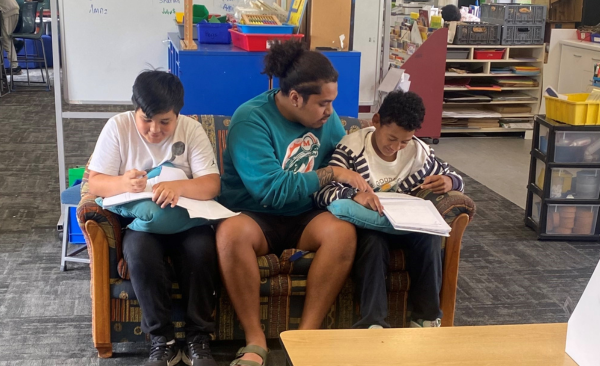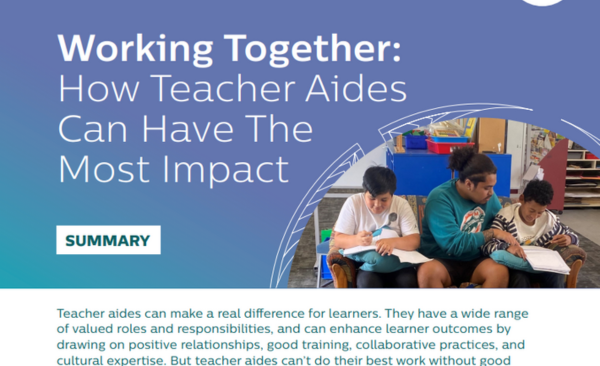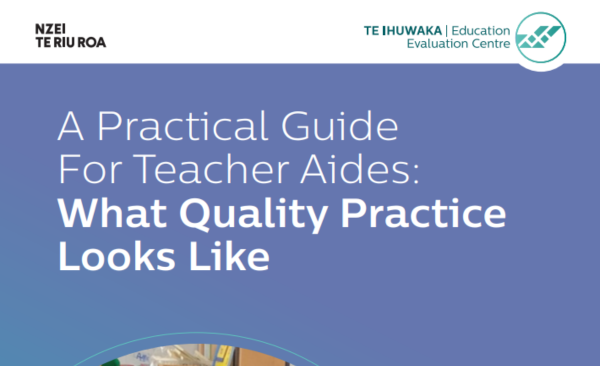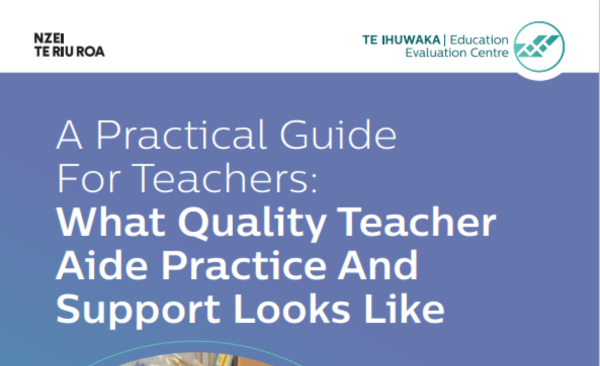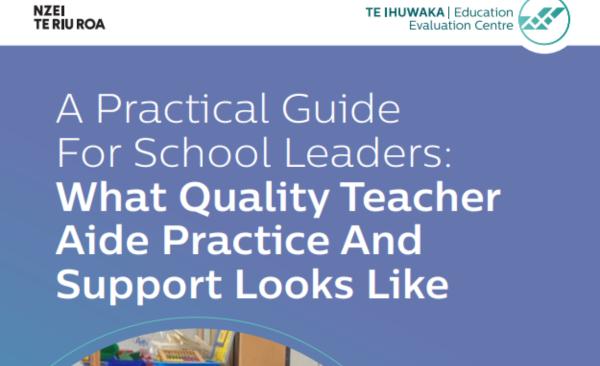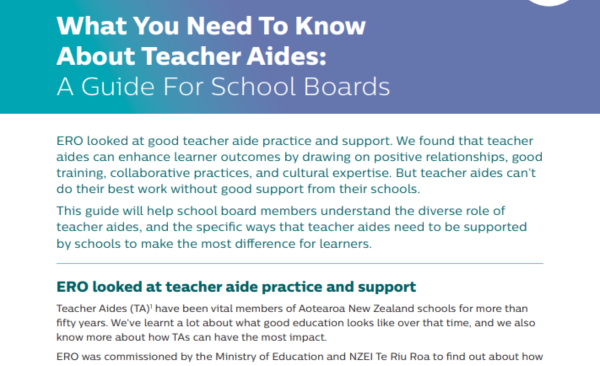This guide gives useful information for the parents and whānau of children who receive support from a teacher aide (TA). At some schools, TAs might be called kaiāwhina, teaching assistants, learning assistants, or inclusive learning assistants.
It will let you know what good TA support looks like, and what you can expect when a TA works with your child.
ERO wanted to find out about good TA practice and support
Teachers aides have been vital members of Aotearoa New Zealand schools for more than fifty years. We’ve learnt a lot about what good education looks like over that time, and we also know more about how TAs can have the most impact.
ERO looked at research from Aotearoa New Zealand and overseas to find out about what TAs can do that makes the most difference for learners. Then we talked to schools, experts, learners, and whānau, to find out about what works well for them.
What did ERO find out?
Constant side-by-side TA support isn’t the best thing for your child
In the past, many TAs worked side-by-side with students with learning support needs, and those learners didn’t spend much time with teachers or their friends. We now know that this wasn’t the best thing for their learning progress, wellbeing, independence, and connections with others.
These days, TAs will usually spend some time with your child, but also work with other learners. Teachers will also spend time working with your child, and find ways for them to take the lead in their learning and to work with their friends. It’s important that your child is supported to learn with their class, not always be outside the group with an adult. Even for learners that need someone with them at all times, this support should come from more than one person, including the teacher.
Part of a TA’s job is to help other learners in the class, so that teachers are free to spend more time working with your child on their learning. Research all over the world has shown that doing things this way is much better for their learning and wellbeing.
What can you expect when your child has TA support at school?
If your child is supported by a TA at school, these are some good practices that might be in place to help them:
- more than one adult who knows how to use special equipment, resources, techniques, and how to take care of their health needs and keep them safe
- a mix of times when they work with the TA, with the teacher, with their friends, and by themselves
-
- for learners that require constant adult support – times when they work with the TA, with the teacher, and opportunities to connect with friends and grow their independence over time
- lots of communication with you from the teacher and others, that helps you to feel sure that your child is supported by a whole team, not just one TA
- individual planning meetings where key people like teachers, TAs, learning support staff, therapists or other experts, and your whānau work as a team to plan for your child
- specific ways to make sure that when your child has appointments or health routines, they don’t miss out on important learning or social times
- plans and strategies to help your child be more independent over time.
What could you ask your school about TA support?
All learners, schools, and communities are a bit different, so it’s a good idea to talk to your school about how TA support works there.
Here are some questions that you can ask:
- What are the roles and responsibilities of the different people that support my child?
- How are teachers and TAs supported to meet my child’s needs? Do they have the right information and training so that they can be confident?
- It’s important that TAs aren’t the only people that work closely with my child – how does the school make sure that my child benefits from quality interactions with teachers?
- How can I work alongside teachers, TAs, and other staff to plan for my child’s learning?
- How do TAs and teachers make sure that my child is fully included in class, can connect with their friends, and can work independently?
- How are teachers and TAs helping my child to grow their independence over time?
If you’d like to know more, you can look at these links:

